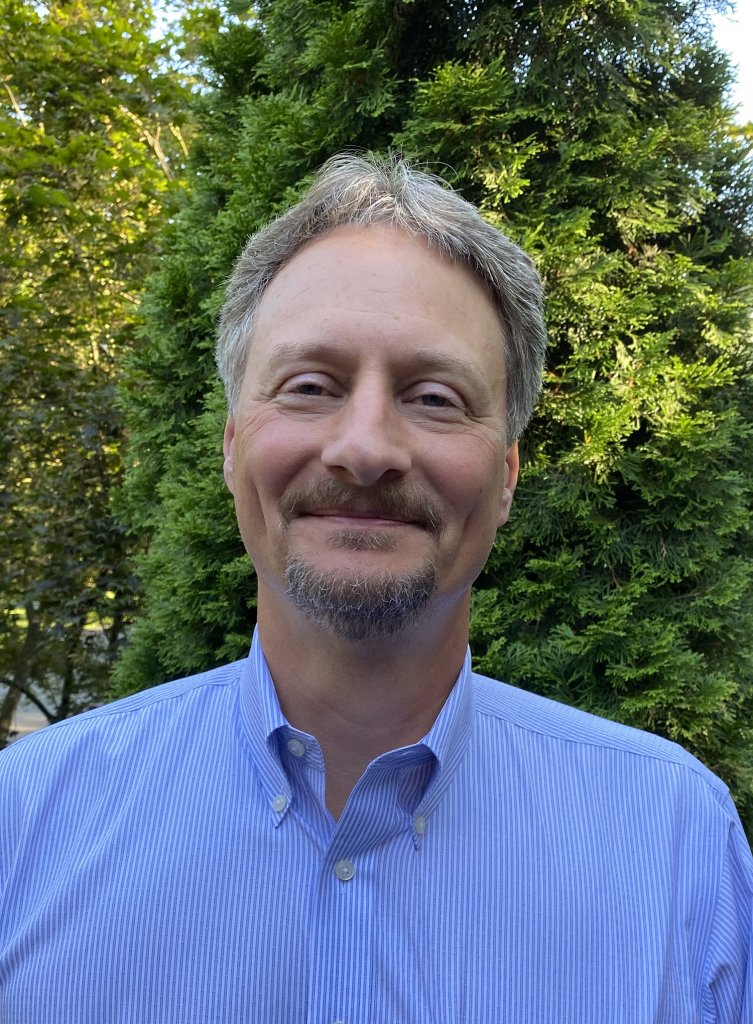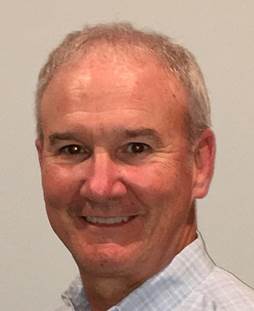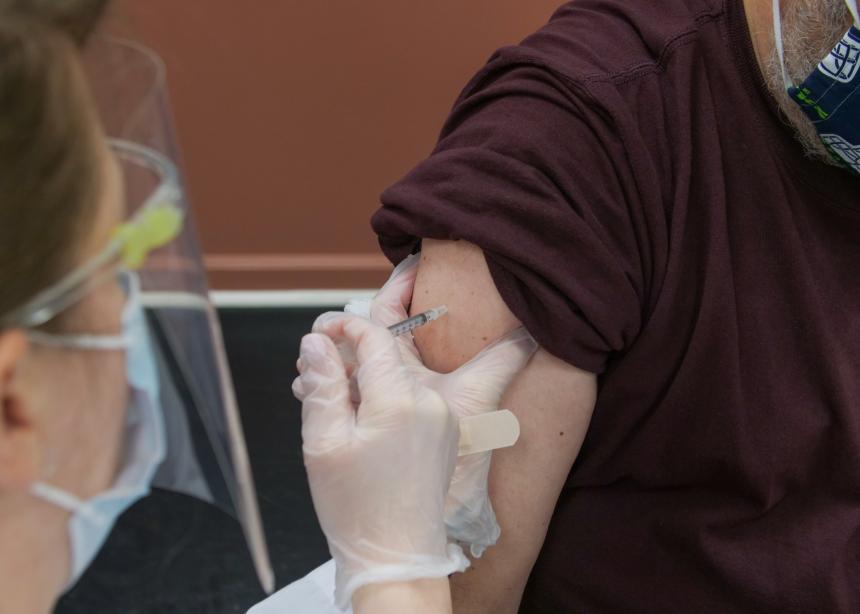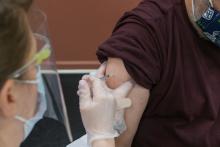Two alumni from Indiana’s Goshen College played important roles in the development of the Pfizer-BioNTech vaccine against COVID-19. Robert Lerch, Ph.D., head of lab and site management and business operations at pharmaceutical company Pfizer, and Mark Wittrig, senior director of quality assurance at Pfizer, both graduated from the college in 1984.

Early days of the COVID-19 pandemic
The first known cases of COVID-19 were reported in December 2019. Three months later, Pfizer released its initial plan for combating the COVID-19 pandemic and announced that the company would be partnering with German pharmaceutical company BioNTech to develop a vaccine.
As senior director of vaccine research, Lerch was responsible for many moving parts of the vaccine development process, including fulfilling lab and office space needs, keeping track of budgets, and ensuring that Pfizer had enough scientists and researchers to move the vaccine project forward. He notes that the hardest part of the process was the very problem that Pfizer was racing to fix: a global pandemic.
“The initiation of the collaboration with BioNTech to develop the COVID vaccine actually meant ramping up activities while trying to minimize potential pandemic impact,” said Lerch. “That was the biggest challenge for me: keeping work going to create new space for the ever-growing COVID vaccine program while managing supplies and activities amid pandemic shortages and restrictions.”
Three states away, Mark Wittrig began work on the quality and regulatory aspects of the vaccine at Pfizer’s manufacturing site in Kalamazoo, Mich.

“I worked very closely with scientists to ensure that every new process, new piece of equipment and new testing procedure was qualified and validated,” he said.
Vaccine status today
Once Pfizer and BioNTech successfully developed a vaccine against COVID-19, the companies needed to determine how to get it to as many people as possible.
“It took a village of over six hundred Vaccine Research and Development colleagues, and hundreds more within other groups in Pfizer, to get a safe vaccine to the public in record time,” said Lerch.
According to Wittrig, the goal was to “figure out how to scale everything up.”
“Instead of making a dozen doses a day in a lab, we needed to be able to make millions of doses a day,” said Wittrig. “We converted facilities that formerly produced other sterile products so that they could make the millions of doses of the vaccine that we needed.”
Now his team at Kalamazoo is distributing about 15 million vaccine doses a week. Most of the doses are currently being sent to Canada, Japan and Latin America.
“Pfizer will distribute three billion doses this year and has plans to produce four billion doses in 2022,” said Wittrig. “The majority of those doses will be distributed at a discounted cost or free.”
However, Wittrig adds, “there is still lots of work to do.”
“I continue to work on updating the manufacturing and testing processes to make them as reliable and efficient as possible,” he said. “This is the best project I’ve worked on in my entire career because it has helped and will help so many people. It’s the reason I got into the pharmaceutical industry 37 years ago.”
Lerch is hopeful for the future of the COVID-19 vaccine and attributes some of his interest in vaccine research and public health to his Goshen College education.
“Early on, working for a biopharmaceutical company seemed a little at odds with [Goshen’s] Culture for Service motto,” he said. “However, in my 27-year career with Pfizer Vaccine Research and Development, I’ve had the privilege to work on multiple vaccines, including COVID-19, which have saved millions of lives and had a significant impact on public health.”
Lerch adds that his time at Goshen College helped him to learn to “think critically and understand that science doesn’t have all the answers.”
“Sometimes you just have to have faith.”



Add new comment
Canadian Mennonite invites comments and encourages constructive discussion about our content. Actual full names (first and last) are required. Comments are moderated and may be edited. They will not appear online until approved and will be posted during business hours. Some comments may be reproduced in print.